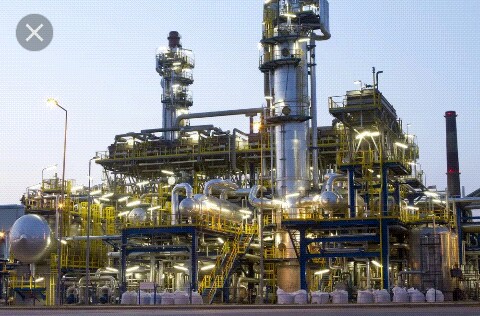The rising oil prices have given the economy a shot in the arm. The government can now fund key projects with more revenue accruing to it. COLLINS NWEZE writes that the windfall also raises hope on implementation of the N8.617 trillion 2018 Budget.
When crude oil price crashed to nearly $25 per barrel in January 2016, there was little hope that it would rebound. But, over two years after, the oil price has risen significantly. It hit $76.56 per barrel ysterday.
The development will no doubt shore up government revenue. For the years, oil has been the mainstay of the economy. But the Federal Government is working on its diversification by boosting the non-oil sectors.
Mining and agricultural are among the sectors being promoted to widen the country’s revenue base.
More than 95 per cent of Nigeria’s foreign exchange (forex) earnings come from crude oil exports. Brent crude oil futures were at $75.59 per barrel up 72 cents, or one per cent, from their last close after climbing to $75.89 a barrel earlier in the session, their highest since November 2014.
The deepening economic crisis, now threatening Venezuela’s existence, is believed to have been responsible for the rise in oil prices.
United States (U.S.) oil prices rose above $70 a barrel for the first time since November 2014. Speculations on whether the U.S. will pull out from a deal with Iran ended on Tuesday as President Donald Trump announced the withdrawal of the U.S. from an Obama-era nuclear agreement with Iran.
Analysts warned that the deepening economic crisis in major oil exporter, Venezuela, threatened to further crimp its production and exports. Venezuela’s oil output has been reduced by half since the early 2000s to just 1.5 million barrels per day (bpd), as the South American country failed to invest enough to maintain its petroleum industry.
Beyond Venezuela’s woes, Nigeria’s economy is gaining momentum as more revenue is expected to accrue to government coffers. This becomes exigent because for the government to meet its developmental goals, especially in funding key projects, which are capital intensive, it must earn enough revenue mainly from oil.
With over N1.3 trillion already sunk into infrastructure, a steady rise in crude oil prices is expected to boost further spending in the segment. The new oil windfall may have created a better opportunity for the Federal Government implement this year’s N8.617 trillion budget.
The infrastructure gap
The Africa Infrastructure Country Diagnostic (AICD) report for 2011 estimated that Nigeria required sustained spending of $14.2 billion per annum over the next decade to effectively tackle its infrastructure challenge.
That pinpoints the huge funding requirement for present and future infrastructural development and its attendant impact on survival and growth of businesses in the country.
Besides, traditional funding methods can no longer suffice as fund providers and various levels of government lack the resources at their disposal. Therefore, earning more funds from oil may simply be the solution to bridging the infrastructure funding gap.
West African Institute for Financial and Economic Management (WAIFEM) Director-General, Prof. Akpan Ekpo, explained that budgetary allocations alone may not be enough to finance the infrastructure deficit in the country. He said the rise in crude oil prices could come to the rescue.
The country’s current available power generation capacity is about 7,000 megawatts, which is a far from the estimated demand of between 10,000 and 12,000 megawatts.
This has resulted in frequent and unpredictable load shedding and a heavy reliance on generators by consumers.
Ekpo said: “With the current political will to tackle corruption and the desire to find a solution to the infrastructure problem, there is the need to channel fresh investments into power supply, roads, the railway and other social amenities.”
The impact on government revenues and the economy has been positive. It has prompted the International Monetary Fund (IMF) to revise its 2018 projections for Nigeria’s growth to 2.1 per cent from 1.9 per cent.
The growth, the IMF said, would be supported by higher oil prices and domestic production, increased forex liquidity and market deregulation.
These will boost investors’ confidence, foreign direct investment and foreign portfolio investment inflows. But achieving these, the Fund explained, will require the implementation of policies, such as tax reforms, social safety programmes and investments in infrastructure.
The impact of the rising crude oil prices is already being felt in the economy. The National Bureau of Statistics (NBS) data showed the Gross Domestic Product (GDP) grew by 1.40 per cent year-on-year in real terms in the third quarter 2017. It was the second consecutive positive growth since the emergence of the economy from recession in second quarter of last year.
The growth, although seen as fragile, was also higher by 0.68 per cent points from the rate recorded in the preceding quarter.
Nigerian Stock Exchange All-share Index (NSEASI) is still miles below record highs set in early 2008, but a 43 per cent rally in 2017 has helped to close the gap.
FBN Capital analyst Olubunmi Ashaolu said the NSEASI was among the best performing indices globally in 2017, better than Nairobi Stock Exchange and Johannesburg Stock Exchange which gained 17.5 per cent and 16.5 per cent respectively.
The NSEASI was still in negative neighbourhood in early May but surged after many offshore investors keyed into the Central Bank of Nigeria’s (CBN’s) Investors’ and Exporters’ (I&E) Forex Window. The forex window’s turnover since late April through to January 3, totals $26.3 billion and has averaged $1 billion on a weekly basis since mid-September last year, after foreign investors got assurances they could exit the market at will. Their share of transactions picked up, reaching 53 per cent and 54 per cent in October and November respectively due to momentum created by the window.
The market had also enjoyed a lift after the foreign reserves accumulation became impressive and the Federal Government successfully tapped the Eurobond market thrice, raising $4.5 billion in three offers. The foreign reserves are now in excess of $47 billion.
Brent crude prices had earlier risen by 5.39 per cent to $66.72 per barrel on December 28, from $63.31 per barrel on December 14.
Oil prices reached $67.02 per barrel on December 26, the highest in 29 months following the announcement of the pipeline blast in Libya – which supplies crude to Organisation of the Petroleum Exporting Countries’ (OPEC’s) major export terminal, the Es Sider terminal.
An economist, Bismarck Rewane, described oil prices rise as positive for Nigeria’s dollar earnings, implementation of the 2018 Budget and better equities performance.
He was optimistic that stocks would keep rising this year as investors take advantage of their low prices.
Another economist with PricewaterhouseCoopers (PwC) Nigeria, Adedayo Akinbiyi, said the budget of $23.82 billion, based on an oil price benchmark of $45 per barrel, oil production of 2.3 million barrels per day and an exchange rate of N305/$1 was meant to consolidate the economic growth recorded last year.
The budget funding would come from $18.82 billion revenue projection, with oil and non-oil accounting for 37 per cent and 63 per cent respectively.
Gross official reserves increased by $3.82 billion in December last year to $38.77 billion following $3 billion raised through Eurobond in November, which was reflected in the reserves on a 30-day moving average basis.
The forex windows enabled the CBN to meet forex demand and the attracted inflows contributed to the accretion of reserves. Reserves at end-December covered 14.4 months’ merchandise imports, and 9.7 months when imports of services are added.
Analysts said the debate should move on from whether Nigeria has an adequate external buffer to whether it is maximizing the revenue accruing from its reserves.
Re-emphasizing the pickup in the economy, Rewane, said economic scorecard for Nigeria showed that crude oil price stood at $52.20 per barrel as at January 2017 and rose to $66.34 per barrel in January 2018.
He said: “The second half of 2018 will be politically driven. There to be increased government spending in the run-up to the 2019 election. This will be favourable for growth.
“On the other hand, investors may adopt the wait and see approach due to political uncertainties.”
But, Rewane warns that Nigeria’s economy remains largely vulnerable to commodity shocks. Lower oil prices or a dip in domestic production due to militant activities will weigh on economic activity, and could possibly reverse current progress. Any delay in policy responses will also prove detrimental.
IMF counsels on diversification
The IMF advised oil-dependent economies, including Nigeria, to intensify economic diversification as the global body foresees the crash of crude oil prices in the near future.
The IMF said: “Some low-income countries like Mozambique and Nigeria have experienced financial stress or deteriorating loan quality in recent years as growth has moderated and corporate balance sheets have weakened.
“Further deterioration in loan quality would impair credit intermediation and ability of the banking sector to support growth, which would raise the risk of cost recapitalisation and severely burden the already strained public finances.”
The IMF Director of Research, Maurice Obstfeld at a news conference yesterday said that global economy would grow by 3.9 per cent in 2018. Obstfeld said the forecast was borne out of the continued strong performance in the Euro area, Japan, China and the U.S.
He said: “Despite the good near-term news, longer-term prospects are more sobering. Advanced economies are far facing aging population, falling rates of labour force and low productivity growth.
“Emerging and developing economies present a diverse picture. Many of these countries need to diversify their economies to boost future growth and resilience.’’
According to Obstfeld, global financial conditions remained loose, despite the approach of higher monetary policy interest rates and enabling a further buildup of asset-market vulnerabilities.
He said the recent escalating tension over trade (U.S. vs China) presented a growing risk for global financial stability.
He said: “The prospect of trade restrictions and counter-restrictions threatens to undermine confidence and derail global growth prematurely.
“While some governments are pursuing substantial economic reforms, trade disputes risk diverting others from the constructive step they would need to take now to improve and secure growth prospects.’’
The IMF encouraged each national government to advance growth by resolving issues of climate change, infectious diseases, cyber-security, corporate taxation and corruption, among others.
The global financial body said “each national government can do much on its own to promote stronger, more resilient and more inclusive growth,” saying that global interdependence will only continue to grow and that “unless countries face it in the spirit of collaboration, not conflict, the world economy cannot prosper.”
Source:The Nation









